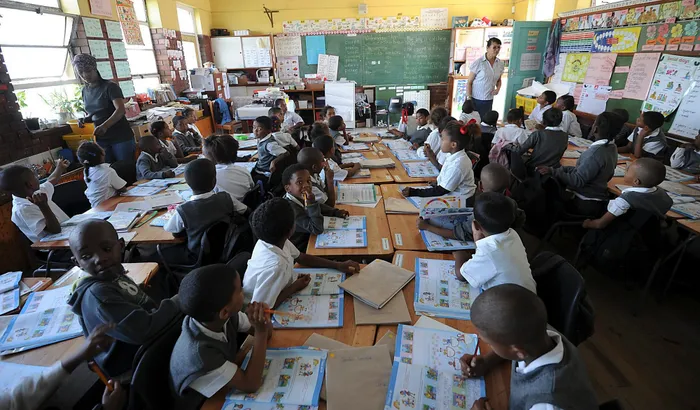Legal action against Western Cape Education Department for failing late applicants

Equal Education and Equal Education Law Centre want the Western Cape Education Department (WCED) to change its admission systems.
Image: Leon Lestrade/Independent Newspapers
Equal Education (EE) and Equal Education Law Centre (EELC) want the Western Cape High court to declare the Western Cape Education Department’s (WCED) failure to timeously place late applicant learners in school unconstitutional and in violation of their rights to dignity and equality, among others.
The matter is expected to be heard Thursday.
The organisations said the focus in this part of the case would be on the WCED’s policy and its failure to address late applications.
WCED spokesperson Bronagh Hammond said the department is opposing the matter and will address this in court.
This is part of the case brought by EE and EELC over the placement of learners who applied late in the 2024 academic year.
The organisations took the WCED to court, seeking an urgent order to put unplaced learners in schools. The organisations also wanted catch-up plans for the learners after being admitted to ensure they meet the academic requirements for 2024.
In a joint statement issued on Tuesday, the EE and EELC said it has been a reality for some children from disadvantaged communities in the province to have no access to school at the beginning of each school year. The organisations said this has been happening for more than ten years.
They said the lack of available school places is particularly prevalent in the WCED’s Metro East Education district, which is a low-income district largely dominated by disadvantaged communities such as Khayelitsha and Kraaifontein. For children living in these conditions, education is a vital pathway to a better future, who cannot afford to be out of school, especially as a result of government shortcomings, the organisations said.
Parents and caregivers who miss the admission application window of the preceding school year are often left in limbo, unsure of the process for handling their late applications, leading to their children being stuck at home for an indefinite period.
The organisations said late applications for school places are informed by multiple factors, including parents having limited access to digital services and impromptu relocations from different provinces to the Western Cape due to factors such as unemployment, unexpected deaths or abuse.
EELC spokesperson, Jay-Dee Booysen, said despite having an understanding of this, the WCED continued to send parents from pillar to post when seeking school placement and as a result of this frustrating process, parents and caregivers continued to approach the EELC and EE for legal interventions.
“After years of unsuccessful engagements with the WCED, on 11 April 2024, the EELC, representing EE along with five parents, had to institute an urgent application for the immediate placement of the affected learners while simultaneously seeking relief to address the systemic failures of the Western Cape government to provide enough school places.
“This urgent application was the second urgent court application in the quest to obtain equal access for all in the Western Cape,” said Booysen, adding that the provincial government was ordered to put in place admission pop-up stations at Khayelitsha Mall, Somerset Crossing, Eerste River, Bloekombos Bloch Centre, and Kuils River from November 2024 to February 1, 2025.
Booysen said the provincial government has not gone far enough to address the systemic challenges to the WCED’s admission systems and procedures for late applications and the lack of planning for timeous placement of late applicants.
“We have continued to monitor the interim measures put in place by the Western Cape government and they have thus far not been successful in eradicating the systemic reality of the lack of school places. We continue to see learners without school places and adequate support as they wait for placement in the Western Cape,” she said.
Cape Times